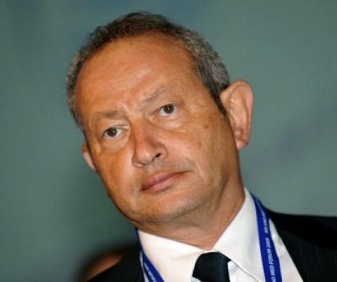
(Photo from Centre for International Governance Innovation website)
Government agencies are set to pay back between EGP 2.5bn and EGP 4bn in arrears to contracting companies in the coming weeks, according to Minister of Finance Ahmed Galal.
Galal added that the government is focused on implementing expansionary economic policies aimed at increasing investment, which has decreased markedly in recent months.
Egypt’s budget deficit has reached 14% of GDP, while public debt has increased to 20%. The country’s balance of payments deficit has reached $2bn, while unemployment rates have reached 13%, with 3.6 million Egyptians out of work. Poverty rates have increased from 20% to 25%.
Despite these indicators, Galal stated that he remained optimistic regarding the future of the economy, due to positive developments which have occurred since 30 June.
He stated during a press conference that the government would seek to utilize $6bn in deposits received from Saudi Arabia, the United Arab Emirates and Kuwait, to prop up the Central Bank of Egypt’s foreign currency reserves, in addition to increasing spending on public investments, giving priority to nearly completed projects that required additional funding. Further priority would be given to projects within the infrastructure, water and electricity sectors, a move which he said would provide additional incentives to private sector companies and help increase investments.
He further announced that the government would soon put in place a new benefits and incentives package, to encourage those working within Egypt’s shadow economy to enter the official market. Incentives would include providing workers with tax exempt status for a period of up to five years, in addition to simplifying the process for obtaining industrial and commercial licences.
He stated that such incentives were important considering that Egypt’s shadow economy employs roughly 40% of the country’s workforce. Such citizens don’t receive pensions, healthcare or compensation in the event that they are injured, and often times are unable to obtain loans.
Galal stated that he had held a number of meetings recently with the Higher Council for Wages to determine an appropriate minimum wage that would provide citizens with a decent standard of living.
He further pointed to the need to determine a unified maximum wage rate that would apply across all sectors. The current law sets the maximum wage rate as 35 times that of the minimum wage, a fact which has led to discrepancies, as the former differs according to each government agency.
Galal further discussed recent increases in sales taxes from 10% to 12.5%, in addition to the prospect of new progressive/real estate taxes. Current real estate tax laws allocate just 50% of tax revenues for the Public Treasury, with the remaining 50% equally split between local and slum development projects. Such projects sought to promote social justice, he said, by redirecting money acquired from the country’s upper classes to those living in poverty.
Regarding sales taxes, Galal stated that tax brackets would not be increased, but that he instead sought to replace them with a value-added tax. Such a system would prevent consumers from bearing the burden of tax values more than necessary.
Regarding progressive tax structures, he said that Egypt had implemented such a system in the past on commercial and industrial sector profits, adding that although it may have appeared sound on paper, tax evasion rates during this time were very high.
He further stated that anywhere between EGP 30bn and EGP35bn in energy subsidies would be provided yearly to the country’s smart card program in order to help combat the smuggling of petroleum products. Such a system would set maximum rates of consumption of petroleum products for users.
Galal explained that social justice would be achieved through three means, the first being to more equitably distribute investment revenue, along with additional job opportunities, across provinces located throughout the country. The second would be to improve the quality of education, health and sanitation services, with the third being to provide more care for widows and those with special needs.
He further discussed a new program put forth by the Social Fund for Development which would seek to provide working age citizens from the lower class with jobs in public facilities for a period of up to 100 days. This program will be funded by the World Bank at a cost of nearly $200m.
He concluded by saying that the interim government would not seek to obtain aid from the IMF, saying that he was more interested instead with implementing the reforms needed to jumpstart the economy. He pointed out that the current government was transitional, and merely sought to pave the way for those to follow.
Regarding foreign aid, Galal said that Egypt was willing to work with any and all nations throughout the globe, saying however that any terms attached to acceptance of such aid would be rejected. He added that he was not concerned with the prospect of certain nations threatening to cut off aid to Egypt.




